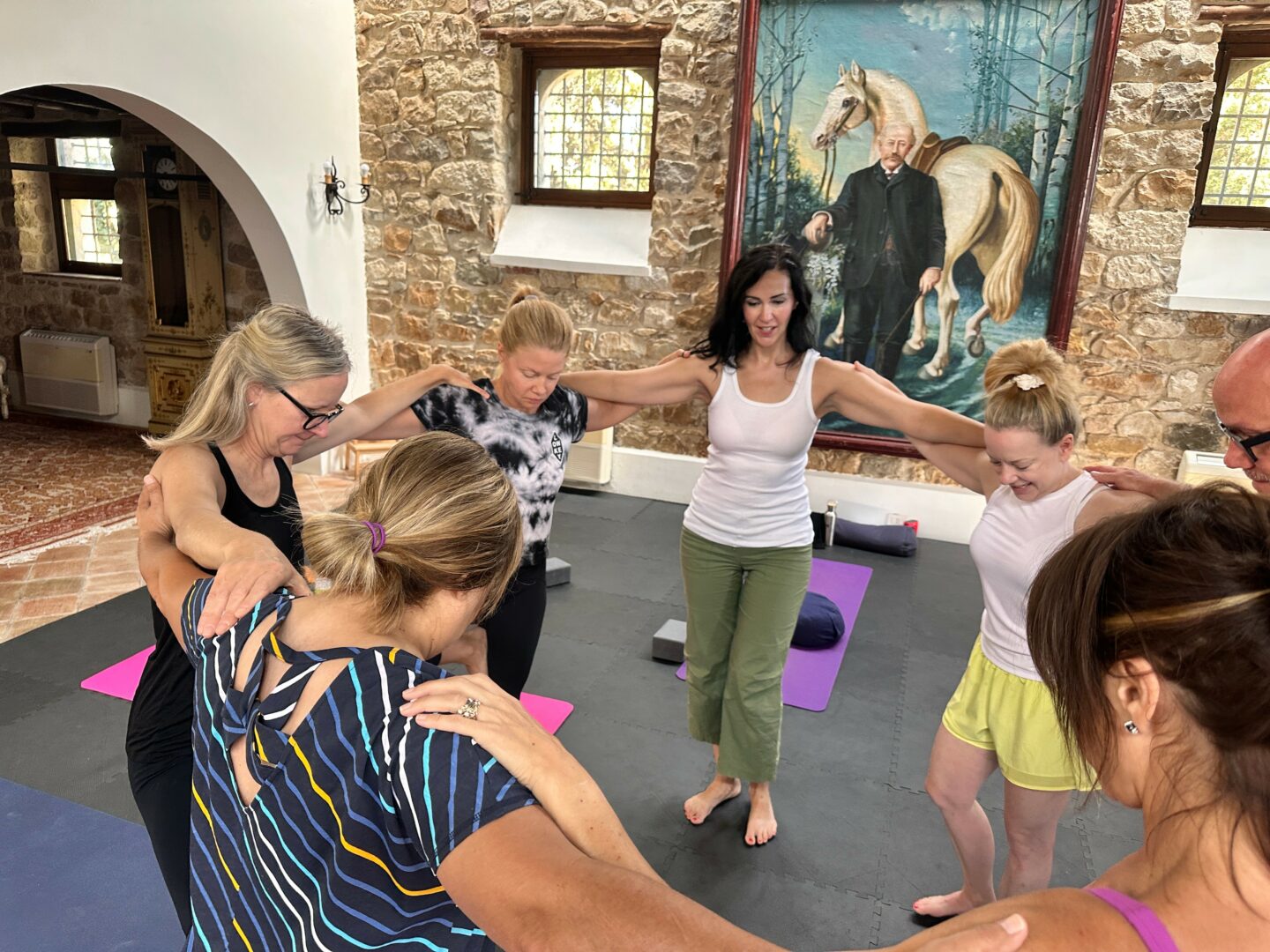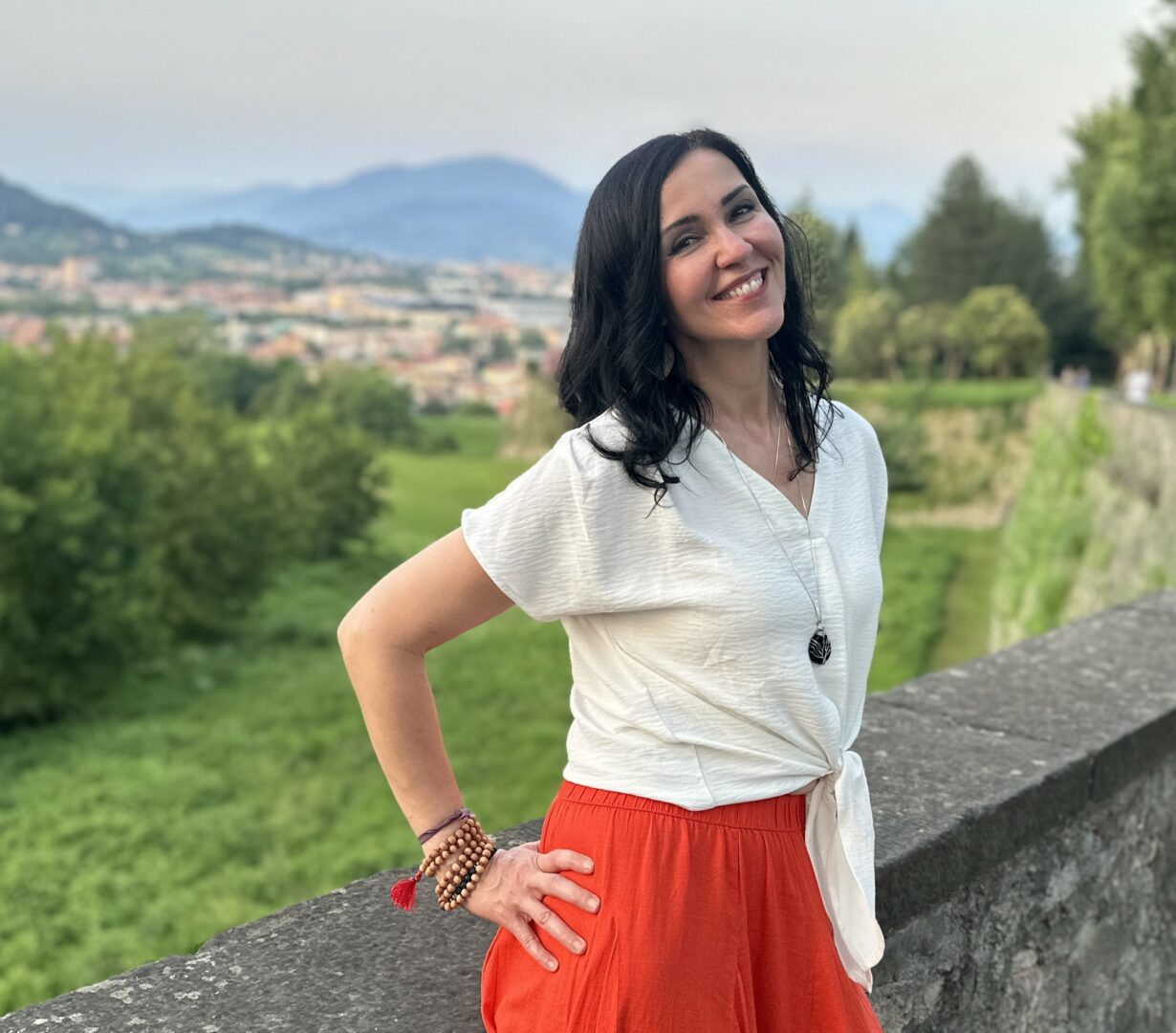We caught up with the brilliant and insightful Joni Sturgill a few weeks ago and have shared our conversation below.
Joni, we’re thrilled to have you sharing your thoughts and lessons with our community. So, for folks who are at a stage in their life or career where they are trying to be more resilient, can you share where you get your resilience from?
As an anxious person in my early 20s I sought out something to help me cope. When I found yoga and meditation, my life started to positively change in many ways. As I practiced, I became more patient and accepting of circumstances beyond my control. I became happier because over time I wasn’t bothered by the little things that once troubled me. I’m thankful I found practices like mindfulness and deep breathing before I had children because they helped me be present with my kids. Plus, I quickly learned that things were not often going to unfold the way that I planned them. My choice was to get upset about this or to learn how to soften and let it go. When you practice this enough you become more easygoing and able to roll with whatever life sends your way. From there I felt like life continued to challenge me, through divorce, being a single mom, working my way through graduate school, and then starting my own business. There were so many obstacles and challenges. But I found that those seemingly difficult situations were not always bad, I experienced growth and learned so much during that time of my life. I think resilience is all about learning that you have the strength to get through whatever life presents to you if you take deep breaths and just keep going.

Great, so let’s take a few minutes and cover your story. What should folks know about you and what you do?
As a long-time student and teacher of Eastern philosophy and Western psychology, I offer secular, integrative mental and emotional insights to participants of my programs so they can heal themselves through breathwork, movement, awareness, perspective-shifting acceptance, and skilled action toward a life they want.
In all avenues of my work, I try to empower individuals to live with purpose and perspective. This is my passion, and I’m so thankful to be part of a process of transformation for so many people! I created the professional development program Plugged into Mindfulness, which is tailored to various industries, from hospitals to school districts. This is a great avenue to help organizations cultivate emotional intelligence, which is one of the most sought-after qualities in both employees and personal relationships.
Whether I’m leading my eight-session Plugged into Mindfulness program, working one-on-one with private clients, or delivering a keynote talk, I’m passionate about helping people see that there’s another option. They don’t have to feel stuck inside their stress.
I found I can also help others through writing; last year I published The Space to Choose, a Path to Life Mastery, which rose to Amazon’s bestselling-self-help list in the first week of release. I’m currently writing a book called The AI Antidote, which addresses the impact of the exponential growth of technology on our emotional intelligence and ability to connect. I’ll offer a set of practices to incorporate alongside technology, to offset AI’s impact on our humanity.
Finally, I’m a proud mother of two college-age children, plus two stepchildren. I love watching them all blossom into adulthood through the ups and downs; they’re all figuring themselves out in their own way, and that’s beautiful. I welcome inquiries through my website, www.insightwithjoni.com.
There is so much advice out there about all the different skills and qualities folks need to develop in order to succeed in today’s highly competitive environment and often it can feel overwhelming. So, if we had to break it down to just the three that matter most, which three skills or qualities would you focus on?
I couldn’t have gotten to where I am without perseverance, resilience, and trust.
Perseverance is all about getting up after you get knocked down. Moving on as quickly as possible after you fail, without spending too much time beating yourself up or feeling sorry for yourself. It doesn’t mean you don’t feel, I’m a big believer in the importance of feelings all of your feelings, but no one ever said you have to stay stuck there. Feel them. Give yourself 15 minutes a day to cry, scream, punch a pillow, breathe deeply, or whatever healthy processing practice you want to do but then move on. Move forward. Keep going.
This all leads to resilience, which is the ability to recover from stress quickly. Some people do this naturally, and some have to work at it. It’s a combination of practice, positive self-talk, and physical practice to help you release the pent-up stress hormones (yoga, walking, hiking, lifting, dancing, whatever you’d like).
Trust is about believing in yourself and something greater, and knowing that you’re going to be okay. Things might not always go as planned, but you will be okay no matter what. This helps to free you from unnecessary worry. Believe in yourself! Again, it’s not always easy, but it’s a practice. One day at a time.
We’ve all got limited resources, time, energy, focus etc – so if you had to choose between going all in on your strengths or working on areas where you aren’t as strong, what would you choose?
I think it is ESSENTIAL to learn what your specific strengths are and to utilize those skills and abilities as much as you can, especially during challenging times. In fact, I’d venture to say that any time you are feeling down, or overwhelmed, it’s probably a sign that you AREN’T using your strengths. So it’s a perfect time to apply them. Our strengths, by their very nature, are perspectives, behaviors, and ways of understanding the world that come naturally to us. Why wouldn’t we start there? I think sometimes we try to make things even more difficult by discounting our strengths and looking at what we aren’t good at. While of course it’s important to work toward balance, in terms of understanding our growth edges and perhaps learning how to move the needle a little bit on those, it’s more impactful to actually apply what you do well.
A great positive psychology tool that helps you find your strengths can be found at viacharacter.org. IT’s a free survey that will give you your top 5 strengths, as well as a list of 25 traits as they move down the scale from strength to growth edge. Rather than focusing on the bottom (what you don’t have), look at what you do have! I’ll give you an example. My top strengths are Spirituality, Honesty, Self-Regulation, Perspective, and Love. Even without reading the descriptions of these characteristics, I think this sounds exactly like me. It’s a very accurate assessment. During times when I’ve struggled and felt down, it’s in part because I feel detached from my sense of spirituality, I’m not self-regulating, nor looking at things from a higher perspective or being honest with myself. As soon as I remember, or look at the card I carry in my bag that has these words listed on it, I ask myself how I can apply one (or more) of my strengths. For instance, my spirituality reminds me what I believe, which is that things happen for a reason, even if I can’t see the big picture right now. This also brings in my strength of perspective, to consider a different view of the situation, from the one I’m entrenched in in my mind. As I work at doing this, I immediately start to feel better. It’s happened so many times in so many circumstances. So learn what your strengths are and then when you’re struggling, check in and ask yourself to see if you’re using them.
Contact Info:
- Website: https://insightwithjoni.com/
- Instagram: https://www.instagram.com/insightwithjoni/
- Facebook: https://www.facebook.com/jonisturgill
- Linkedin: https://www.linkedin.com/in/joni-sturgill-1615541a/
- Youtube: https://www.youtube.com/channel/UCdPOmNlSqILAcgL5mn490CA
so if you or someone you know deserves recognition please let us know here.




